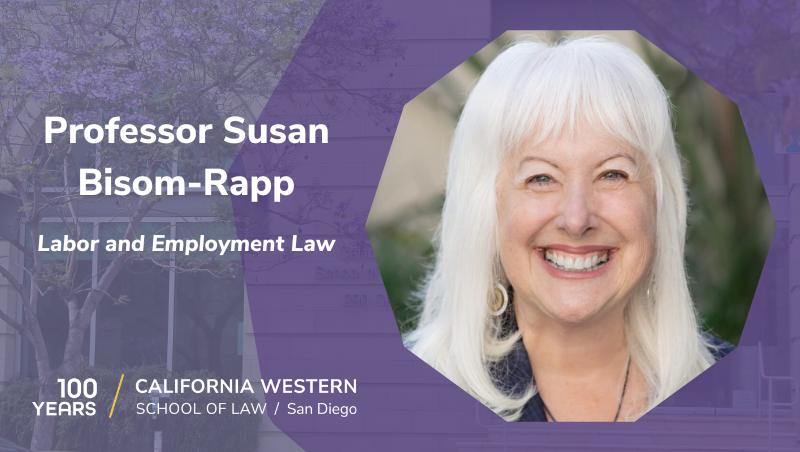
CWSL Professor Cited in Major Report on Canada’s Employment Equity Act

Professor Susan Bisom-Rapp has made a career out of in-depth research into labor and employment law, both in the United States and abroad. This week, her scholarly work was prominently quoted in a major report by the Canadian Task Force on Canada's Employment Equity Act (EEA).
The EEA was passed in 1986 to ensure equal employment opportunity in federally regulated
Canadian workplaces. In 2021, the Canadian government created a task force to undertake
a comprehensive review of the impact of the law. The task force was also asked to
make recommendations for change where warranted. Adelle Blackett, who is Professor
of Law and Canada Research Chair in Transnational Labour Law at McGill University,
was appointed chair of the task force. This week, the Canadian Minister of Labour
Seamus O'Regan Jr. and Professor Blackett announced the report's release.
Professor Bisom-Rapp’s latest law review article, "The Role of Law and Myth in Creating
a Workplace that 'Looks Like America'," 43 Berkeley Journal of Employment and Labor
Law 251 (2022), which was published one year ago this month, was first cited in the
task force report’s introduction. In her article, Professor Bisom-Rapp argues against
what she characterizes as the largely cosmetic approach to diversity, equity, and
inclusion in the United States. More specifically, she critiques the assumption that
certain efforts – for example, DEI training or DEI complaint procedures – will improve
workplace climates for underrepresented groups. In fact, poorly designed tools can
make things worse. In place of a form over substance approach to DEI, Professor Bisom-Rapp
challenges legislators, judges, and employers to embrace an evidence-based approach
that rewards employers who demonstrate measurable improvements in DEI. Later in the
task force report, Professor Bisom-Rapp was quoted at the start of a section recommending
incentivizing the removal of barriers to equity:
Altering the legal incentives that reward a cosmetic approach, however, is necessary
but insufficient. Ultimately, an evidence-based approach to compliance requires innovative
employers to collaborate with researchers and regulators.
Professor Bisom-Rapp commented that she “was honored and humbled” to have her recommendation
cited. “Needless to say, when I published the article, I never assumed it might have
an impact beyond our borders,” she said. “I am really pleased that my article came
to the attention of Professor Blackett and that she and the task force saw value in
its thesis.”
You can read the task force’s full report here.
